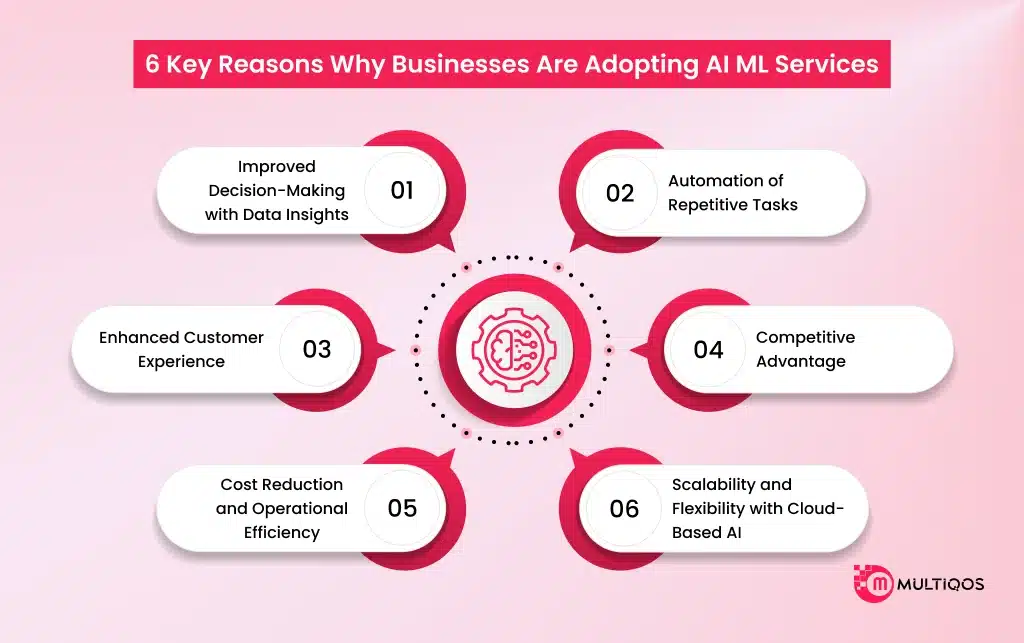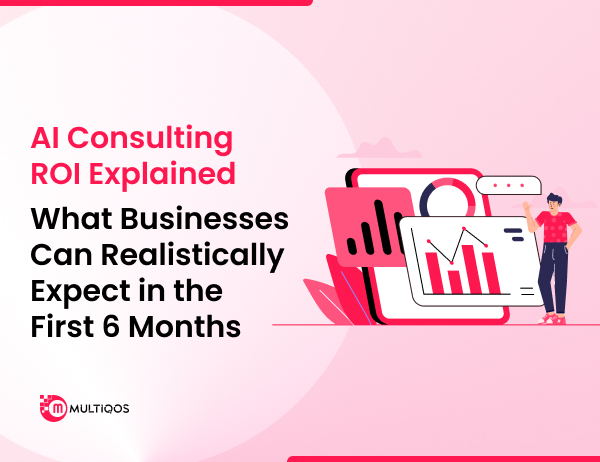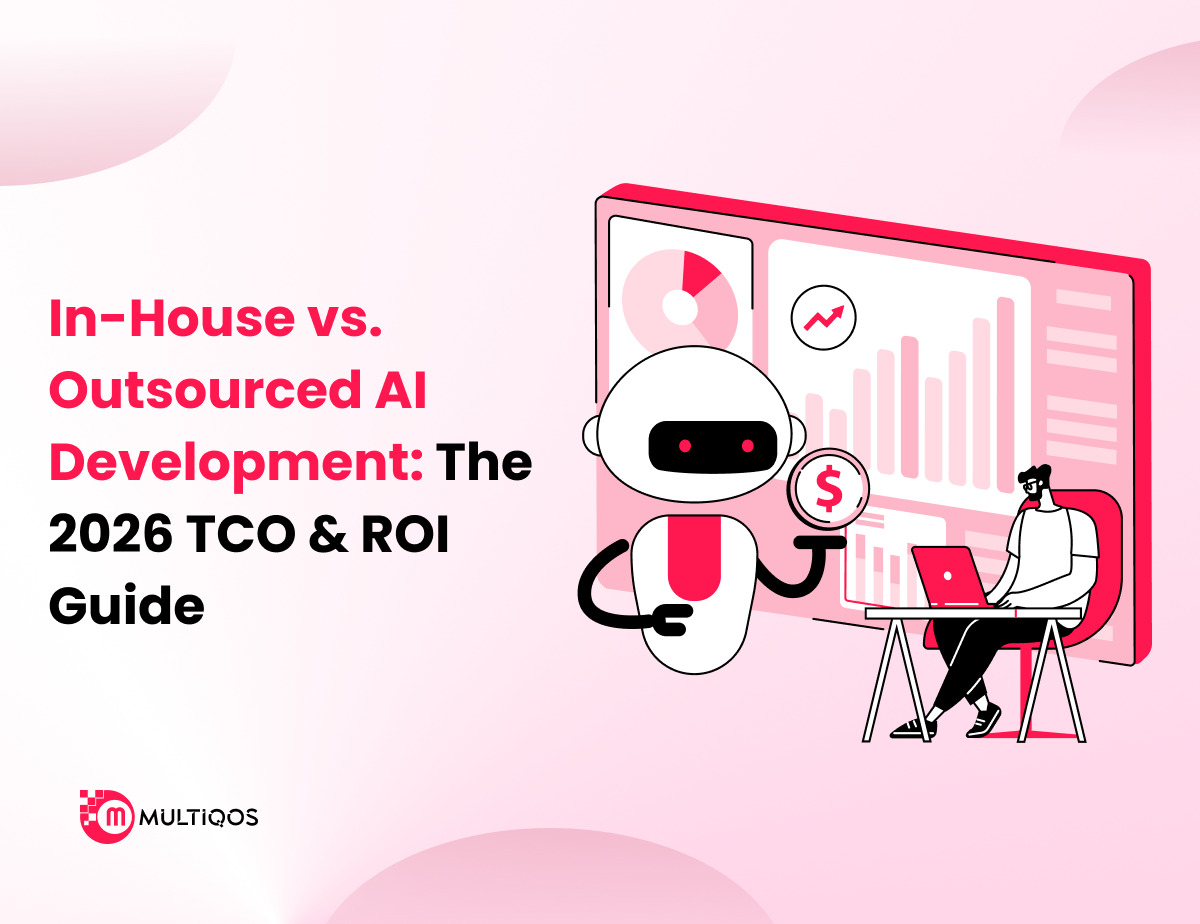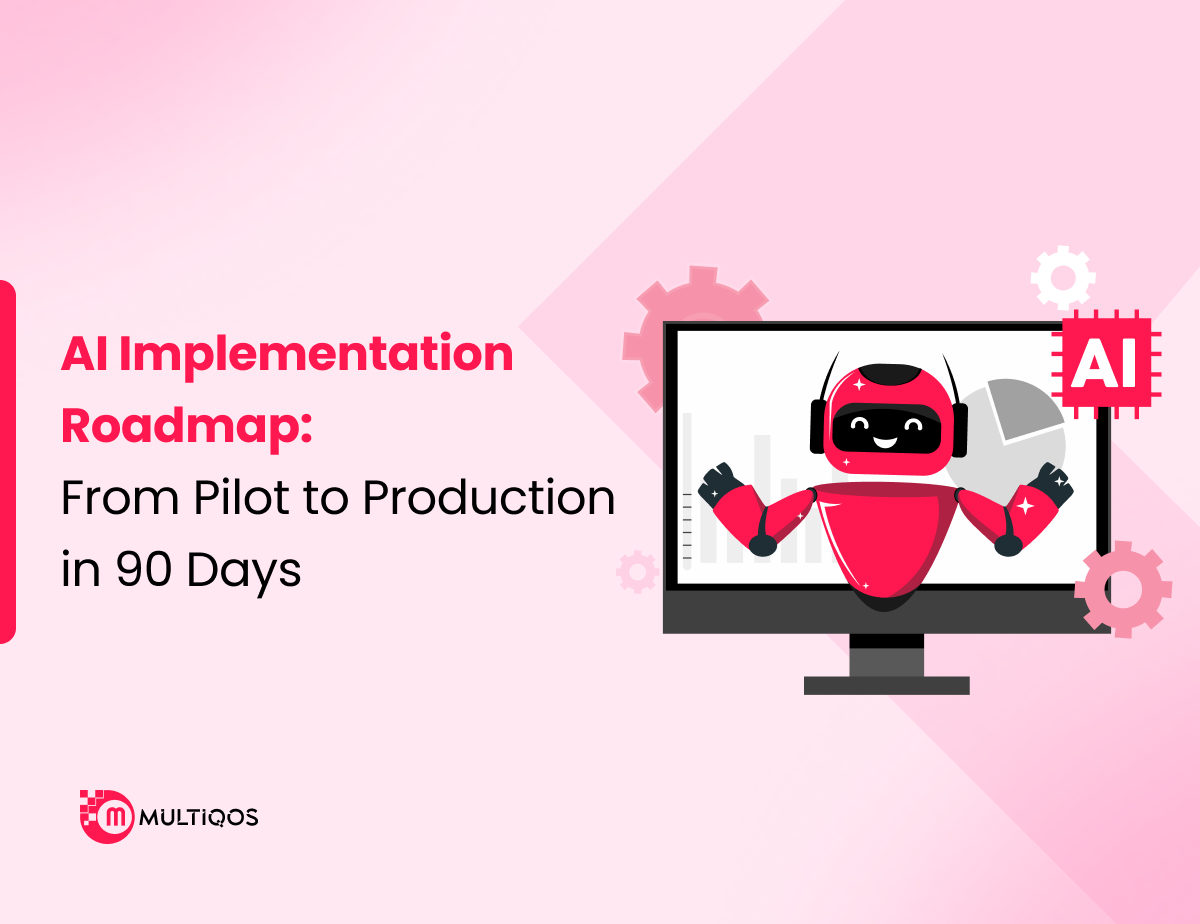Why Businesses Are Adopting AI ML Services Faster Than Ever?
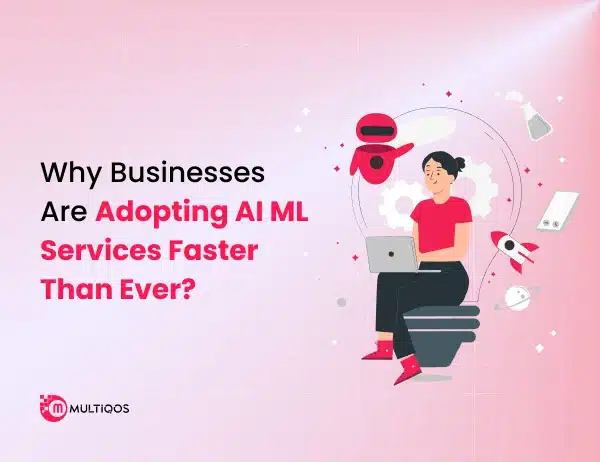
Summary:
AI and ML are no longer futuristic buzzwords—they’re critical business enablers. This blog explores why businesses are adopting AI ML services faster than ever, diving into the core drivers behind this trend. We’ll cover the most common use cases across industries, the measurable benefits of AI and ML adoption, and the strategic reasons companies, both large enterprises and agile startups, are accelerating their investments in these technologies. This blog provides the insights you need to understand the momentum and how your business can benefit from it.
Introduction
In the past few years, more and more companies have started to implement AI and ML services. There is a notable increase in the rate that which businesses are adopting these technologies now. All industries are trying to prioritize emergent services that were previously ignored. From multinational companies to small tech companies, everyone is transforming their digital strategies with AI and ML development services leading the charge.
But have you ever wondered why businesses are adopting AI ML services at such an accelerated pace? By 2026, automated insights will be required to keep organizations flexible and efficient because of fast decisions, rapid technological change, and challenging competition
6 Key Reasons Why Businesses Are Adopting AI ML Services
AI and ML are no longer concepts of the future. They are now the backbone to grow businesses. Companies from all industries and of all sizes are adopting the technologies at an almost record pace. But what is the cause of this surge? Look at these 7 factors that outline this remarkable shift.
1. Improved Decision-Making with Data Insights
Gathering data for modern businesses has now become seamless than ever, whether you want to track orders or monitor inventories now remarkably smooth. It is still worth knowing how to discover meaningful insights even when the data is available.
With the fast development of AI and machine learning, it is now possible to analyze a variety of huge data by combining it with companies. The tools can be used to identify trends, diagnose early signs of problems, and identify obscure patterns. Because of this, they are used by businesses to enhance their operations, understanding of the customer, minimize risks, and predict demand, as well as enhance their general performance.
2. Automation of Repetitive Tasks
Over and over, doing the same things manually is costly, inefficient, and subject to human error. Think about the recurring operations, invoice processing, email sorting, and routine customer support- now being handed over to AI and machine-learning tools.
Cutting out the tedium not only frees up time and cash but also keeps firms within regulatory lines, an absolute must in insurance, banking, and healthcare. The result is a noteworthy boost in both precision and compliance. Rather, shifting human effort towards strategic or complex business functions enhances operational efficiency.
3. Enhanced Customer Experience
Due to new technology, clients have come to expect rapid, highly specialized services – an efficient provision that is accomplished with the assistance of machine learning and AI.
With recommendation platforms pioneered by Amazon and Netflix, firms now engage customers in real-time via fluid pricing, individualized marketing messages, and AI-powered chatbots. Natural language processing sharpens these systems’ comprehension and response speed, raising overall satisfaction and loyalty.
Such capabilities allow organizations not merely to hold onto clients but also to build deeper brand affinity and extend customer lifetime value.
4. Competitive Advantage
To stay current in the hustle and bustling world, we have to be innovative at a consistent pace; this is because change has come at quite a rapid pace. Companies that rapidly incorporate artificial intelligence and machine learning tend to disrupt the old business model and leave the competitors behind.
Take, for example, the fraud-monitoring platforms many fintechs run or the routing plans logistics firms craft through machine-learning models. All companies that take too long to implement AI and ML are likely to have sluggish practices, low flexibility, and low customer relationships. It has become a necessity to be competitive using these tools, and not an option anymore.
5. Cost Reduction and Operational Efficiency
AI and machine learning will help businesses save a lot of money in the long term. Using AI in manufacturing, one can establish that AI can be used to predict when machines are to be maintained to prevent breakdowns and to make equipment last longer.
Waste and excess stock are also lowered by making supply chain planning more precise due to AI. Such gains in operating efficiency allow for better business agility while still effectively scaling.
6. Scalability and Flexibility with Cloud-Based AI
The use of AI and ML has become easier due to cloud technology. Thanks to AI-as-a-Service (AIaaS), businesses can forgo heavy infrastructure purchases. Instead, they tap ready-made machine-learning modules on AWS, Azure, or Google Cloud.
That cloud model opens the door to fast trials and quick revisions. A startup probing buyer behavior or a multinational steering cross-border shipments both find computing power and storage just one click away. Up-front capital sinks disappear; organizations pay only for what they use, while still having the room to scale. This model increases innovation speed while lowering expenses.
Final Thoughts
The recent rise in the popularity of AI and ML can be regarded as a sign, confirming that businesses have changed their focus to the concept of innovation and the streamlined work process, and data-based decision-making. A firm can only be relevant when it is able to change and adapt to emerging technological fronts. Artificial intelligence and machine learning embody such frontiers, offering an advantage that rivals find difficult to equal.
The term “long-term goal” has been revamped to “immediate goal” due to the changing customer expectations, market demands, and staying relevant in the business world. No matter if you are just starting on the AI journey or already have some initiatives in place, the question of investing in AI ML development services is no longer about whether it will pay off, but when—and for many companies, that moment is now.
FAQs
A tremendous amount of data accessing, advances in technology, enhanced tools and infrastructure, and smarter automation are a few of the main reasons why businesses are adopting AI ML services quickly.
The AI ML services help businesses create unique models, automate business processes, improve interactions with customers, also allow predictive decision-making based on data analysis.
Sectors like finance, healthcare, retail, logistics, and manufacturing have begun using AI ML technology mostly because of the immense amounts of data these fields generate and the need for improved efficiency.
Indeed, numerous platforms for AI ML as well as development services have now been made available and can be accessed at scale, even for Small and Medium Businesses (SMBs) with resource constraints.
Get In Touch

